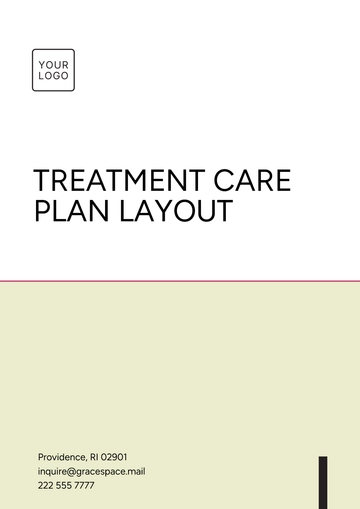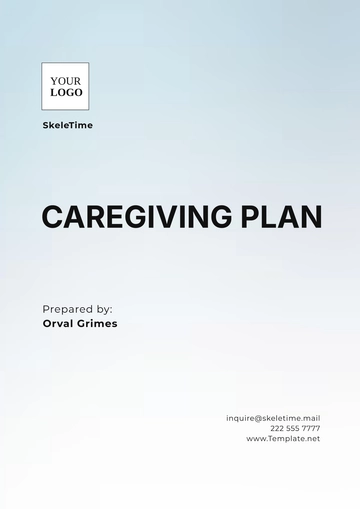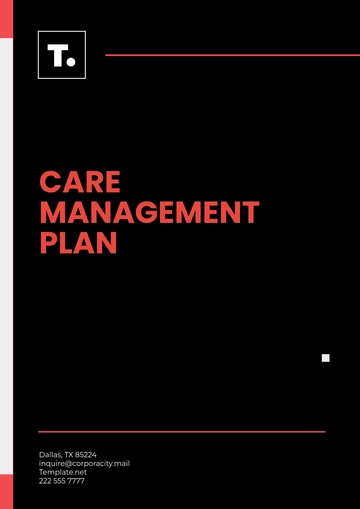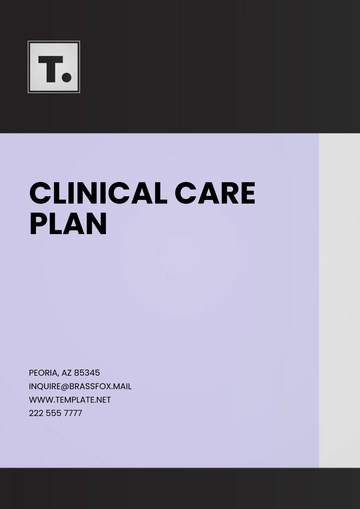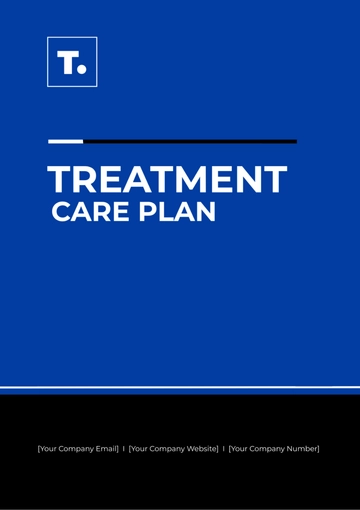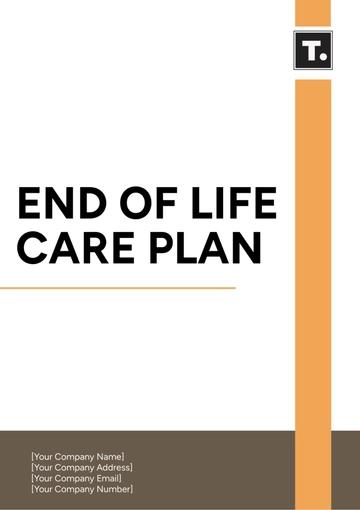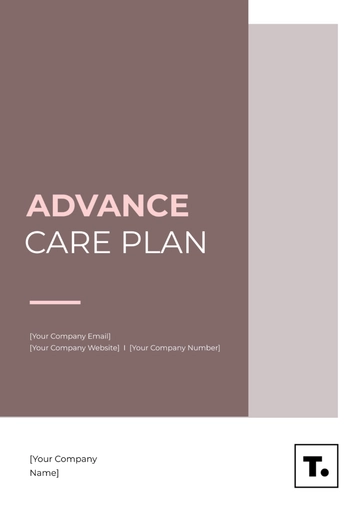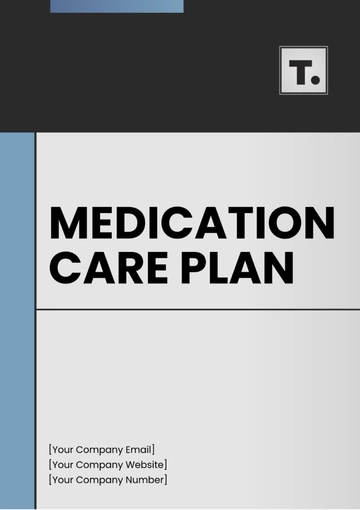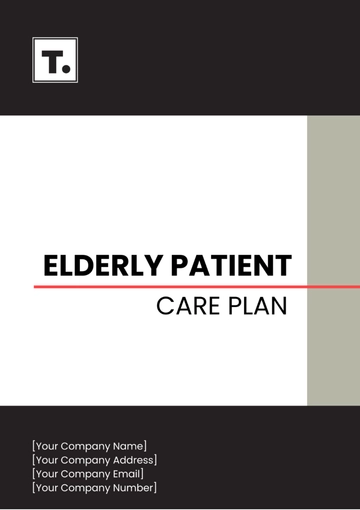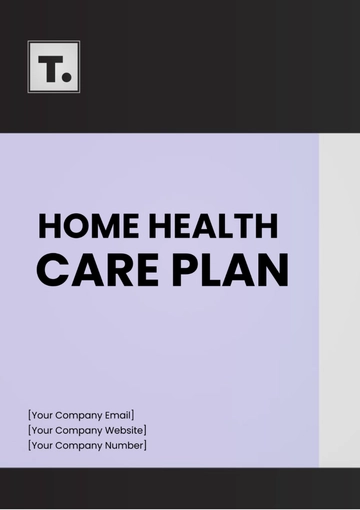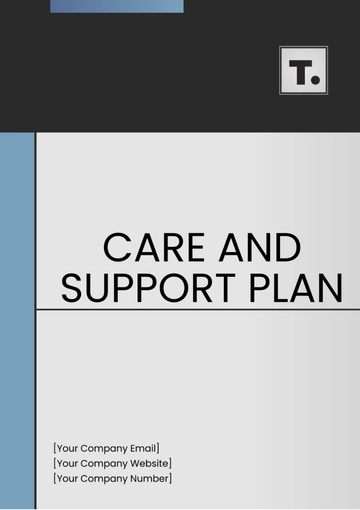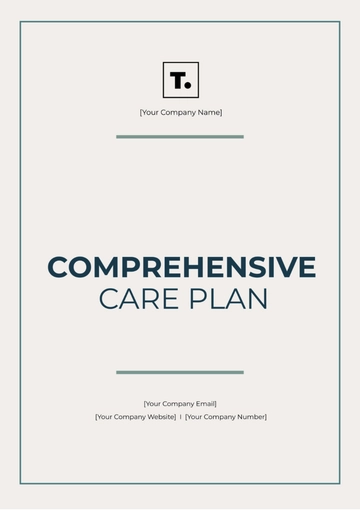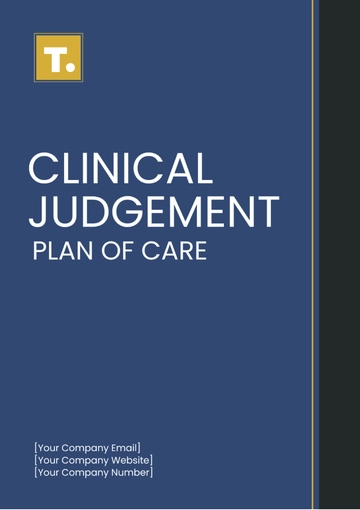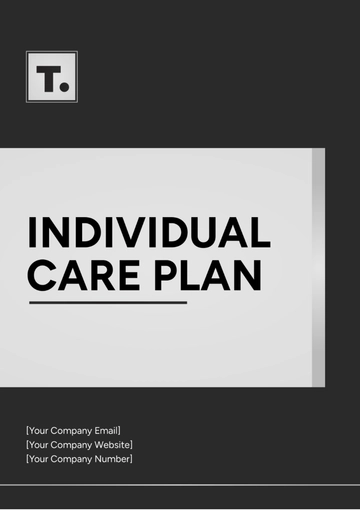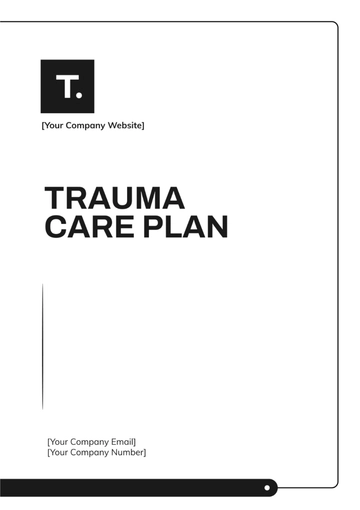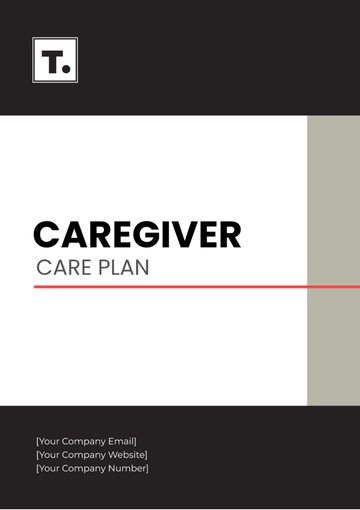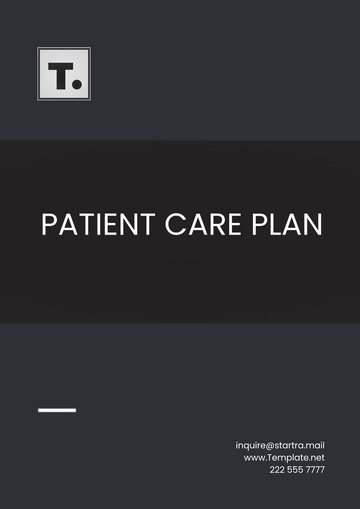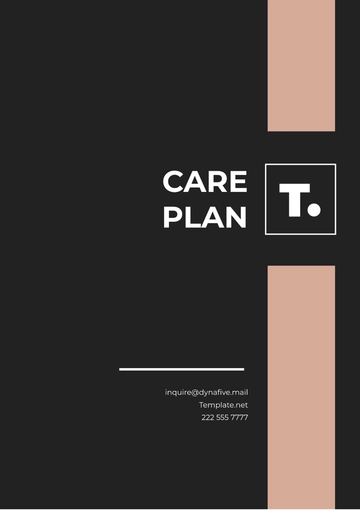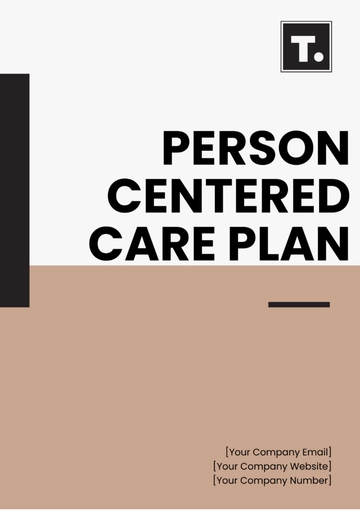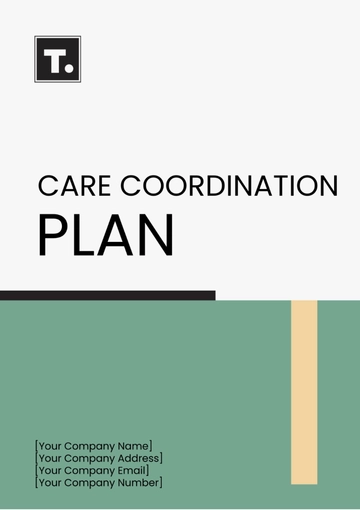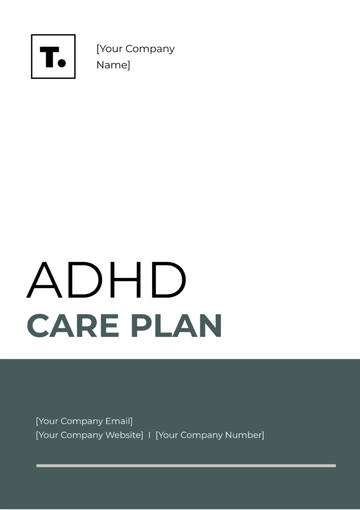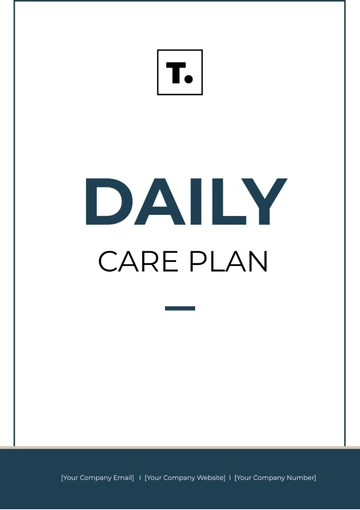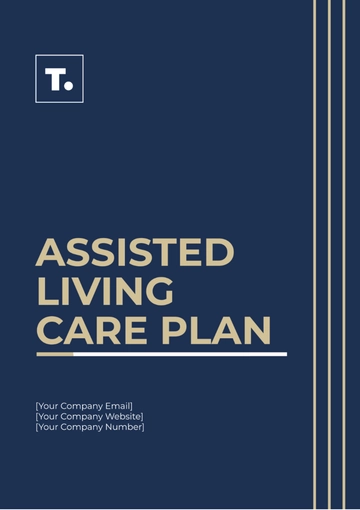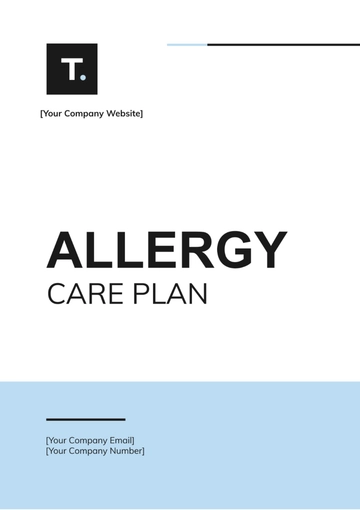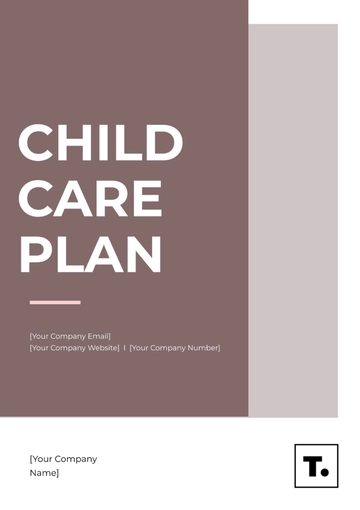Free Nutrition Care Plan
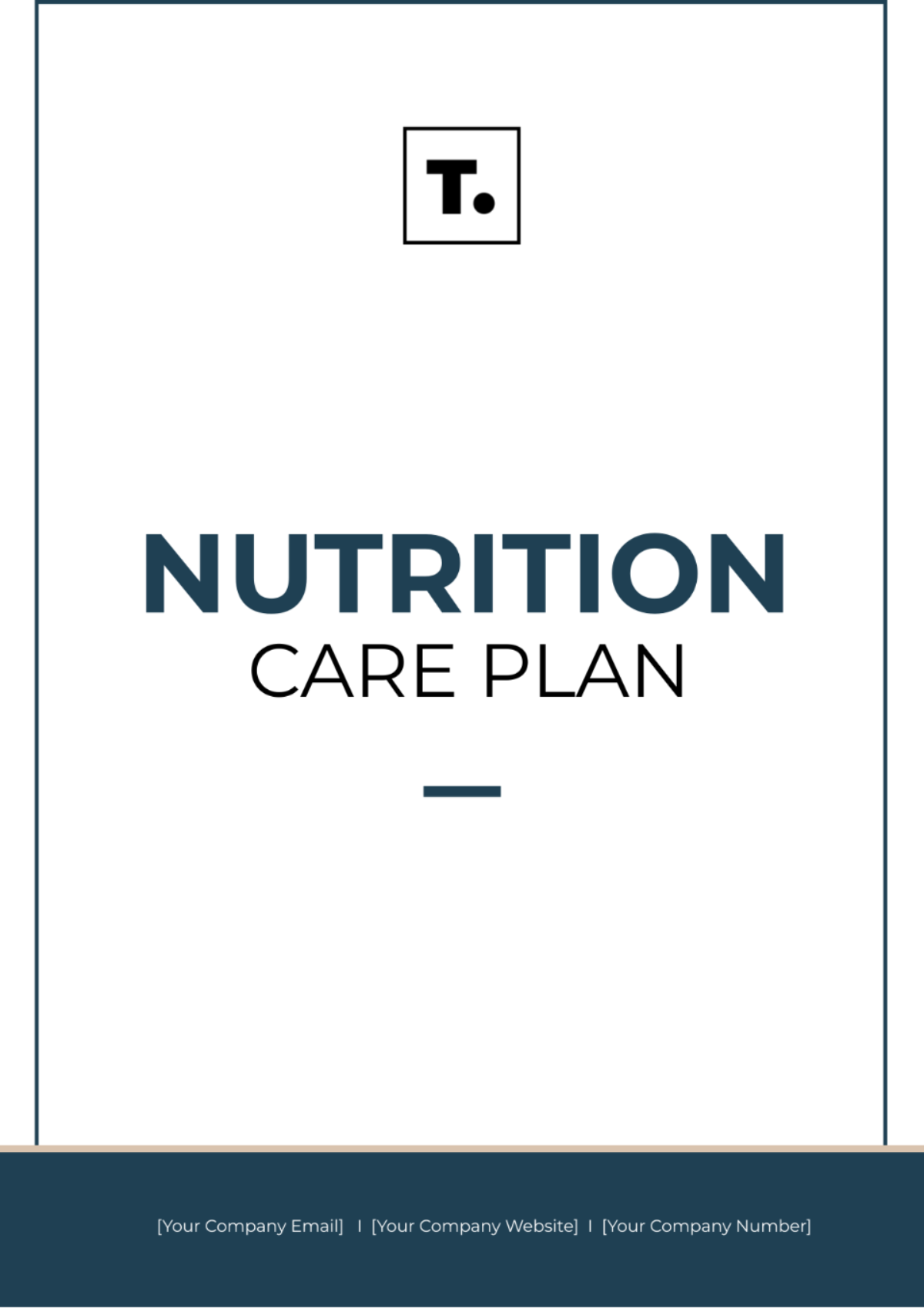
Written by: [Your Name]
I. Patient Information
Patient Name: | Logan Chandler |
Age: | 45 |
Gender: | Male |
Medical History: | Type 2 Diabetes, Hypertension, Hyperlipidemia |
Contact Information: | [Patient's Contact Information] |
II. Nutritional Assessment
Assessment Date: January 15, 2050
Conducted by: [Your Name]
The nutritional assessment includes evaluating the patient's current dietary habits, caloric intake, macro and micronutrient status, weight history, and medical background. The assessment aims to identify nutritional risks and establish baseline data for ongoing care.
Key Findings:
Caloric Intake: 2800 kcal/day
Macronutrient Distribution: Carbohydrates 50%, Proteins 20%, Fats 30%
Micronutrient Levels: Vitamin D - Low, Iron - Normal, B12 - Low
Body Mass Index (BMI): 29.5 (Overweight)
Weight Changes: +15 lbs in the past year
Other Relevant Data: High fasting blood glucose levels
III. Nutritional Diagnosis
Based on the nutritional assessment, the following diagnosis has been identified:
Imbalanced nutrition related to excessive caloric intake as evidenced by weight gain.
Risk for unstable blood glucose levels related to Type 2 Diabetes.
Deficiency in Vitamin D and B12.
IV. Nutritional Goals
The following goals have been established to address the identified diagnosis:
Achieve a weight reduction of 10% over the next 6 months.
Stabilize blood glucose levels within the normal range.
Increase Vitamin D and B12 levels to normal ranges.
V. Intervention Plan
The intervention plan outlines specific actions to achieve the nutritional goals:
Dietary Modifications:
Reduce daily caloric intake to 2000 kcal.
Increase intake of leafy greens, lean proteins, and whole grains.
Limit sugary snacks and high-fat foods.
Supplementation:
Vitamin D supplement: 2000 IU daily.
Vitamin B12 supplement: 500 mcg daily.
Behavioral Strategies:
Implement mindful eating practices.
Schedule regular meals and snacks to avoid overeating.
Physical Activity Recommendations:
Engage in 150 minutes of moderate-intensity exercise per week.
Incorporate strength training exercises twice a week.
VI. Monitoring and Evaluation
Regular monitoring and evaluation will be conducted to ensure the patient remains on track to meet their nutritional goals. Follow-up appointments will be scheduled as per the table below:
Follow-up Date | Consultant | Notes |
|---|---|---|
February 15, 2050 | Dr. Smith | Evaluate weight loss progress and adjust diet if necessary. |
March 15, 2050 | [Your Name] | Monitor blood glucose levels and supplement adherence. |
April 15, 2050 | Dr. Johnson | Assess Vitamin D and B12 levels; modify supplements as needed. |
VII. Nutritionist Approval
I, [Nutritionist Name], have created this Nutrition Care Plan based on a comprehensive assessment of [Patient Name]'s nutritional needs and medical history. I will provide ongoing support and adjustments as necessary to achieve the outlined goals.

[Your Name]
[Date Signed]
VIII. Healthcare Provider Acknowledgement
I, [Healthcare Provider Name], have reviewed and approved the Nutrition Care Plan for [Patient Name]. I will coordinate with the nutritionist to support the patient’s nutritional goals as part of their overall healthcare plan.

[Healthcare Provider's Name]
[Date Signed]
- 100% Customizable, free editor
- Access 1 Million+ Templates, photo’s & graphics
- Download or share as a template
- Click and replace photos, graphics, text, backgrounds
- Resize, crop, AI write & more
- Access advanced editor
Discover the ultimate solution for personalized nutrition guidance with Template.net's Nutrition Care Plan Template. This editable and customizable template is tailored for healthcare professionals, offering comprehensive features to create bespoke dietary plans. Easily modify in our Ai Editor Tool for seamless customization and optimal patient care.
You may also like
- Finance Plan
- Construction Plan
- Sales Plan
- Development Plan
- Career Plan
- Budget Plan
- HR Plan
- Education Plan
- Transition Plan
- Work Plan
- Training Plan
- Communication Plan
- Operation Plan
- Health And Safety Plan
- Strategy Plan
- Professional Development Plan
- Advertising Plan
- Risk Management Plan
- Restaurant Plan
- School Plan
- Nursing Home Patient Care Plan
- Nursing Care Plan
- Plan Event
- Startup Plan
- Social Media Plan
- Staffing Plan
- Annual Plan
- Content Plan
- Payment Plan
- Implementation Plan
- Hotel Plan
- Workout Plan
- Accounting Plan
- Campaign Plan
- Essay Plan
- 30 60 90 Day Plan
- Research Plan
- Recruitment Plan
- 90 Day Plan
- Quarterly Plan
- Emergency Plan
- 5 Year Plan
- Gym Plan
- Personal Plan
- IT and Software Plan
- Treatment Plan
- Real Estate Plan
- Law Firm Plan
- Healthcare Plan
- Improvement Plan
- Media Plan
- 5 Year Business Plan
- Learning Plan
- Marketing Campaign Plan
- Travel Agency Plan
- Cleaning Services Plan
- Interior Design Plan
- Performance Plan
- PR Plan
- Birth Plan
- Life Plan
- SEO Plan
- Disaster Recovery Plan
- Continuity Plan
- Launch Plan
- Legal Plan
- Behavior Plan
- Performance Improvement Plan
- Salon Plan
- Security Plan
- Security Management Plan
- Employee Development Plan
- Quality Plan
- Service Improvement Plan
- Growth Plan
- Incident Response Plan
- Basketball Plan
- Emergency Action Plan
- Product Launch Plan
- Spa Plan
- Employee Training Plan
- Data Analysis Plan
- Employee Action Plan
- Territory Plan
- Audit Plan
- Classroom Plan
- Activity Plan
- Parenting Plan
- Care Plan
- Project Execution Plan
- Exercise Plan
- Internship Plan
- Software Development Plan
- Continuous Improvement Plan
- Leave Plan
- 90 Day Sales Plan
- Advertising Agency Plan
- Employee Transition Plan
- Smart Action Plan
- Workplace Safety Plan
- Behavior Change Plan
- Contingency Plan
- Continuity of Operations Plan
- Health Plan
- Quality Control Plan
- Self Plan
- Sports Development Plan
- Change Management Plan
- Ecommerce Plan
- Personal Financial Plan
- Process Improvement Plan
- 30-60-90 Day Sales Plan
- Crisis Management Plan
- Engagement Plan
- Execution Plan
- Pandemic Plan
- Quality Assurance Plan
- Service Continuity Plan
- Agile Project Plan
- Fundraising Plan
- Job Transition Plan
- Asset Maintenance Plan
- Maintenance Plan
- Software Test Plan
- Staff Training and Development Plan
- 3 Year Plan
- Brand Activation Plan
- Release Plan
- Resource Plan
- Risk Mitigation Plan
- Teacher Plan
- 30 60 90 Day Plan for New Manager
- Food Safety Plan
- Food Truck Plan
- Hiring Plan
- Quality Management Plan
- Wellness Plan
- Behavior Intervention Plan
- Bonus Plan
- Investment Plan
- Maternity Leave Plan
- Pandemic Response Plan
- Succession Planning
- Coaching Plan
- Configuration Management Plan
- Remote Work Plan
- Self Care Plan
- Teaching Plan
- 100-Day Plan
- HACCP Plan
- Student Plan
- Sustainability Plan
- 30 60 90 Day Plan for Interview
- Access Plan
- Site Specific Safety Plan

